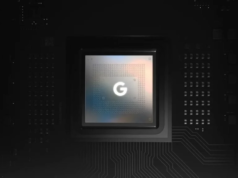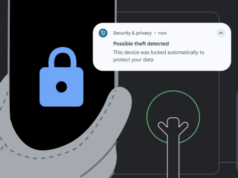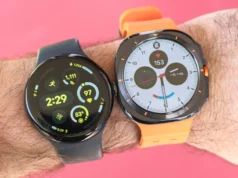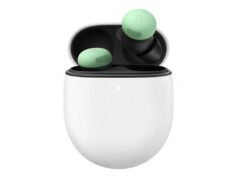A peculiar bug has surfaced in Google Pixel devices running the latest Android 15 update, leaving some users puzzled and frustrated. Reports from multiple sources, including Android Authority and IT Home, highlight that after upgrading to Android 15, Pixel 8 and Pixel 9 series users are encountering a persistent notification anomaly during incoming calls. This issue not only disrupts the user experience but also creates confusion with a strange “psoriasis” reference in the notification.
The Notification Bug: What Users Are Experiencing
The problem arises when Pixel users receive an incoming call. Instead of the usual notification, a pill-shaped pop-up appears on the screen. This notification displays the word “Answer,” enabling users to pick up the call using Google Assistant’s Quick Phrases feature. Quick Phrases allows users to interact with their devices without using the “Hey Google” wake-up phrase, offering commands like “Answer” to accept calls or “Decline” to reject them.

However, what has perplexed users is that some notifications inexplicably include the word “psoriasis.” Adding to the frustration, the notification often remains stuck on the screen even after the call has ended. This glitch not only obstructs the caller ID but also renders the notification area unusable, blocking access to other essential notifications and creating a significant inconvenience.

Affected Devices and Scope of the Issue
The bug seems to primarily affect users of the Pixel 8 Pro and Pixel 9 Pro XL devices running Android 15’s latest stable version. While the exact number of impacted users remains unclear, the issue has been widely discussed online, indicating that it is not an isolated problem.
Android 15 was anticipated to bring improvements in performance, user interface, and new features, but this bug has diverted attention from the update’s highlights. For users relying on seamless functionality, particularly during calls, this issue has been a major letdown.
Possible Causes and Google Assistant’s Role
At the heart of this glitch is the integration of Google Assistant’s Quick Phrases. While designed to enhance convenience by allowing users to answer or decline calls hands-free, the feature seems to have encountered a technical snag in Android 15.
The appearance of the word “psoriasis” is particularly baffling and has led to speculation among users and tech analysts. It is unclear whether the term is an internal placeholder that inadvertently surfaced or a mistranslation within the system. Regardless of the reason, its presence adds an unusual layer to the already disruptive bug.
The bug’s persistence after the call ends further compounds the issue, as the notification continues to obstruct the screen. Users cannot access other notifications or interact with parts of the interface near the affected area, severely impacting usability.
User Frustration and Impact
For many Pixel owners, the bug has turned routine phone calls into a frustrating experience. Incoming calls, which are typically straightforward interactions, now come with unnecessary complications. The inability to clear the persistent notification means users must resort to restarting their phones to regain full functionality.
Additionally, the blocked caller ID has significant implications for users who rely on their phones for professional communication. Missing vital information about who is calling can lead to missed opportunities or delayed responses.
Pixel devices are often touted as the flagship standard for Google’s Android ecosystem, so a bug of this nature is particularly disappointing for loyal users who expect premium performance.

Google’s Next Steps
As of now, Google has not issued an official statement addressing the bug, but given the widespread attention it has garnered, a fix is likely in the works. Historically, Google has been proactive in resolving software issues, often releasing patches or updates once a problem is identified.
For affected users, the wait for a resolution may feel frustrating, but temporary workarounds, such as disabling certain features or relying on manual call management, could offer some relief. In the meantime, users are encouraged to report the bug through Google’s feedback channels to ensure it receives the necessary attention.
Looking Ahead: Challenges in Software Updates
This incident underscores the challenges tech companies face in delivering major software updates. While Android 15 was designed to enhance the Pixel experience, unforeseen bugs can detract from user satisfaction. Balancing the rollout of new features with the stability of existing ones remains a delicate process for developers.
For Google, this serves as a reminder of the importance of thorough testing, particularly for flagship devices like the Pixel 8 and Pixel 9 series. With users relying on their smartphones for daily tasks, any disruption—especially one as peculiar and persistent as this—can quickly become a source of frustration.
Conclusion
The Android 15 bug affecting Pixel devices highlights both the potential pitfalls of software updates and the importance of user feedback in resolving such issues. While Google Assistant’s Quick Phrases was intended to streamline call handling, its implementation in this case has created more problems than solutions.
As Google works to address the issue, affected users can only hope for a swift resolution. In the meantime, the strange “psoriasis” notification serves as a curious reminder of the complexities involved in modern smartphone software development. For now, Pixel users must exercise patience as they navigate this unexpected glitch in their otherwise feature-rich devices.




